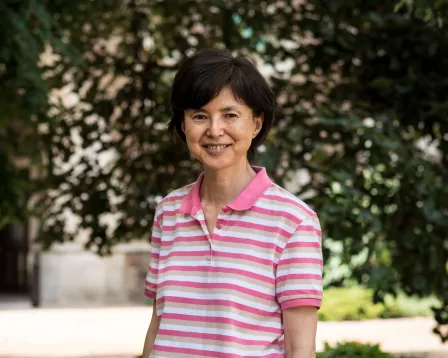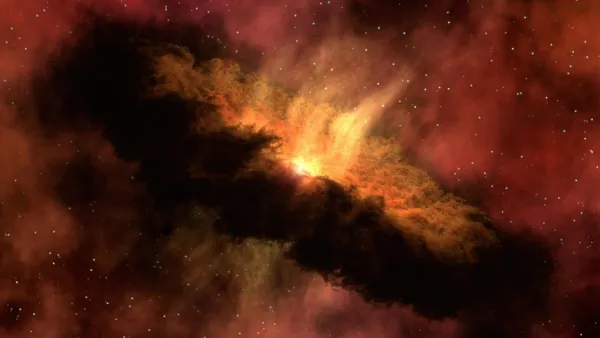Sachiko Amari, research professor of physics in Arts & Sciences at Washington University in St. Louis, received the H. C. Urey Award from the European Association of Geochemistry for outstanding contributions advancing geochemistry over a career.

Amari has made groundbreaking and fundamental contributions to cosmochemistry, especially to the study of carbonaceous presolar grains and noble gases in meteorites. Her work has provided key new insights into the stellar nuclear processes responsible for the synthesis of the chemical elements and into the still-mysterious nature of the primary carrier of noble gases in the earliest building blocks of planets.
Presolar grains are dust grains that originated at a time before the sun. They remain largely intact in meteorites and other extraterrestrial materials. By examining these grains using various instruments, scientists have learned about nucleosynthesis in stars, mixing in stellar ejecta, temporal variation of isotopes and elements in the galaxy and grain condensation in stellar ejecta.
The H. C. Urey Award is named in honor of Harold Clayton Urey, an American physical chemist whose pioneering work on isotopes earned him the Nobel Prize in chemistry in 1934 and later led him to theories of planetary evolution. The award is based on scientific excellence as well as the broader impacts candidates have made in their careers to date. The award is presented at the V. M. Goldschmidt Conference.
At Washington University, Amari is a faculty fellow of the McDonnell Center for the Space Sciences and a member of the Laboratory for Space Sciences research group in the Department of Physics. She is also a visiting scientist at the Geochemical Research Center at The University of Tokyo, Japan. Amari is a fellow of The Meteoritical Society since 2000 and a member of the Japan Geoscience Union.
Header image: artist's concept of fledgling solar system. (Image: NASA/JPL-Caltech)



